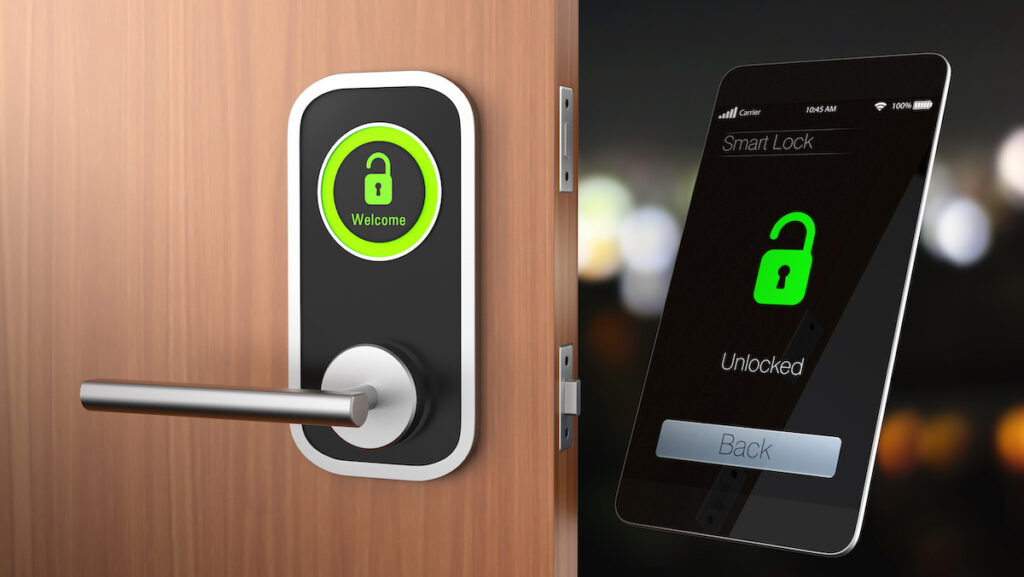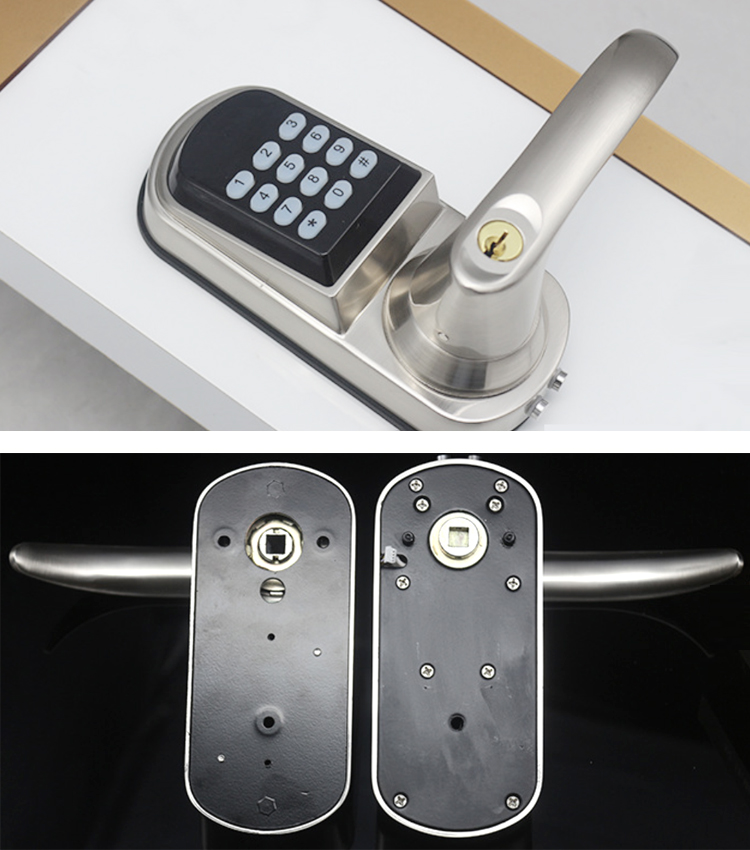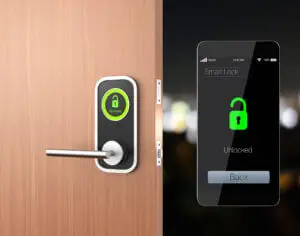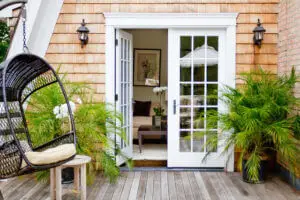In this modern era, with innovative technology emerging every day, there have been many advancements in the global smart lock market as well.
One such innovation is smart locks. With smart locks, you can make sure that your properties are secure and easily accessible to authorized personnel.
The technology has significantly increased the smart lock market share, and the Asia Pacific is expecting more growth over the forecast period.
In this ultimate guide on smart lock investments, we will explore everything about the latest trend and market growth in security systems.
What is a Smart Lock?
A Smart Lock is an electronic device that secures access to any door by replacing traditional mechanical keys with digital keys or biometric authentication methods like fingerprints, face recognition, or passcodes.
From key systems to keyless systems, smart locks add extra security and convenience.
How Do Smart Locks Work?
Smart locks operate through Bluetooth or WiFi connections to a mobile application installed on the user’s smartphone or tablet. Once connected through these technologies using bespoke firmware and robust algorithms, smart locks provide real-time data and security features that traditional locks don’t possess.
What Are The Benefits of Investing in Smart Locks?
Investing in smart locks has many benefits, including:
- Enhanced Security: Smart locks offer much higher levels of physical security than traditional key-based locking mechanisms.
- Remote Monitoring: A user can maintain full control over their properties at any given time, even from miles away.
- Easy Integration: These devices integrate perfectly with various home automation platforms providing seamless functionality across multiple devices simultaneously.
- Convenience: With no worries about lost or stolen keys, more convenience means less hassle while going in and out of your property.
Are All Smart Locks Equally Secure?
Not all smart locks deliver similar standards of safety; however, majorly reputed brands design production models tested by accredited laboratories for mandatory certifications like BHMA (Builders Hardware Manufacturer Association), ANSI/BHMA Grade 1 Certification( a highly regarded standard for residential and commercial locking devices)
Suppose you’re considering investing in a new smart lock. In that case, you must ascertain if the device is compliant with certified safety standards before installing one in your home or office to avoid exposing your property to unauthorized breaches and steal.

Why Should You Consider Investing in Smart Locks?
The advancement of technology has granted us greater comfort, luxury, and protection, and with smart locks on your front doors, 24/7 access is available at your fingertips.
Unlike traditional cylinder key-based systems that have a higher security risk from burglars or known contacts who’ll be given duplicate keys to open the locks without even needing much previous knowledge or skills, the modern fingerprint or passcode-driven alternative eliminates such risks.
Hence, investing in smart locks will provide you with peace of mind knowing that your property is safe.
What Should You Look for When Investing in Smart Locks?
When investing in smart locks, it’s essential to know what features you want and how they meet your needs. Below are some key factors to consider:
- Installation: Determine if you can install the door lock yourself or if professional services are required.
- Integration: Make sure the device integrates with other smart home devices like Alexa or Google Assistant for ease of use and convenience.
- Compatibility: Ensure that the locks are compatible with iOS and Android smart devices running an updated operating system.
- Power source: Understand which power source suits you best – battery-operated or common electrical circuits.

Is There Any Risk Associated With Smart Door Locks?
As we’ve already observed, most reputable brands have passed accredited laboratory tests for mandatory certifications.
However, just like any other smart devices, things can happen beyond our control sometimes. This reason makes proper research before investing in one paramount.
Additionally, cybersecurity threats on any networked systems involving personal identification could be a potential vulnerability point under attack by hackers who hope to gain unauthorized access to those properties through numerous methodsn— all these matters require concern before making an informed decision.
How Much Does It Cost To Invest In A Smart Lock?
Smart lock prices vary broadly based on different factors such as the type of locking technology used, manufacturing brand reputation., durability rating (commercial vs. residential), and components incorporated into functionality like WiFi connectivity compatibility.
Moreover, pre-set access schedule updates are enabled through DevOps-powered firmware design architecture.
Generally speaking, you might pay between $200 to $500 per door, whereas more sophisticated models may go way above this price range with complex biometric authentication techniques.
Can I Still Use Traditional Keys And Mechanical Locks Alongside My Smart Lock?
Yes, they are compatible with traditional key-based locking systems. This means that you wouldn’t have to replace your existing smart door lock mechanisms, but you can efficiently operate the new smart locks at the same time.
Hence, in case of a power outage or any unforeseen technical issue that causes malfunction on a digital-enabled lock device, there’s always the backup plan through an old-fashioned mechanical key to access their property.

How Do Smart Locks Differ From Traditional Locks?
While both locks perform similar primary functions of securing properties and belongings still, whereas traditional locks require a physical key to gain access, smart locks use digital methods like biometric identification, passcodes, or Bluetooth connectivity via mobile applications for proper operation.
Additionally, smart locks offer remote monitoring capabilities through their associated apps, something traditional mechanisms can’t provide. This means that users can set alerts and receive real-time information as soon as someone enters or leaves their property.
Are Smart Locks Difficult to Use?
No, they are not difficult to use. They’re equipped with touchscreen displays that make it easy to control the locking functions on the device via a user-friendly app available on iOS and Android devices.
The setup process is typically seamless and straightforward, with clear instructions guiding you throughout the installation process. The smart locks worth can’t be understated as they are the key players in the lock market size.
Conclusion
Smart locks have revolutionized the smart lock market by increasing the security levels of our properties while also providing us with innovative ways of controlling access.
They offer conveniences that traditional locks just can’t match, from remote monitoring to real-time updates.
It’s important to understand what you want in your investment when considering a Smart lock, including factors such as installation procedure and compatibility with devices and systems.
The smart locks market has a lot of variety of smart home technology, from lock system to Wi-Fi or pin code-enabled home security smart locks. In the both residential segment and commercial segment, there is a low demand for traditional lock systems but rising demand for smart locks.






